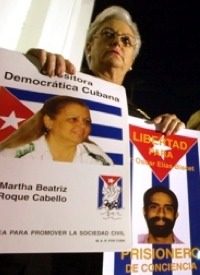
For instance, one of the United States’ abuses supposedly occurred in its application of the death penalty: “Mexican national José Medellín was executed in Texas on 5 August, in violation of the USA’s treaty obligations and an order by the International Court of Justice.” Amnesty International condemns the United States for its use of capital punishment and for not bowing to the International Court of Justice. While the merits of the death penalty may be debated, at least the United States was right in not surrendering its sovereignty to an unaccountable international body that was claiming authority it does not possess.
This appeal to international authority is found throughout the report. The Preface even begins by quoting the UN’s Universal Declaration of Human Rights: “All people are born free and equal, in dignity and rights.” True enough, but in the declaration the UN states that the exercise of rights and freedoms is subject to “such limitations as are determined by law,” and “these rights and freedoms may in no case be exercised contrary to the purposes and principles of the United Nations.” There is no recognition in the document that government must protect and never interfere with these God-given rights.
In fact, the report seems to have a love-hate relationship with government itself. Irene Khan, secretary general of Amnesty International, inadvertently touches on this in her foreword to the report. On the one hand, Khan says that governments have “abdicated economic and financial regulation to market forces,” adding that “human rights were too often relegated to the backseat as the juggernaut of unregulated globalization swept the world into a frenzy of growth.” She is apparently forgetting that government regulation can easily harm the economy and put people into unemployment and poverty — witness the international trade agreements that have contributed to so many American jobs moving overseas. Regardless of this, Khan seems to be advocating more government regulation of the economy, something that can only be accomplished by making government bigger and giving it more power.
On the other hand, she condemns “rich and powerful governments” that dole out money to save large investment banks because those governments “were suddenly able to find many more times the sums that could not be found to stem poverty.” Of course, she also condemns big and powerful governments like Communist China’s that regulate the free flow of information and the expression of dissent. Unfortunately, Khan can’t have it both ways: if she wants government to be big enough and powerful enough to regulate all aspects of the economy, then she is asking for the kind of government that she condemns for being “unrepentant and unaccountable” in its abuse of power. And if she is looking for the UN to be the body that governs all the lesser governments of the world, then she is actually promoting the biggest and most unaccountable government the world has ever known.
Amnesty International has always been about concern for those who are imprisoned unjustly by oppressive governments. It has performed an admirable function in speaking out for those who have no voice. The group’s new intent to take up the cause of eliminating poverty is likewise admirable. To prisoners of conscience they now add “prisoners of poverty,” and Amnesty International will “demand concrete measures to overcome the factors that impoverish and keep people poor.” Hopefully, though, Amnesty will change next year’s report to reflect two important truths: only when government is kept small and limited can it be kept from abusing human rights, and only when the marketplace is allowed to be free and open can it provide the best opportunities for the poor to escape their fate.
Photo: AP Images



